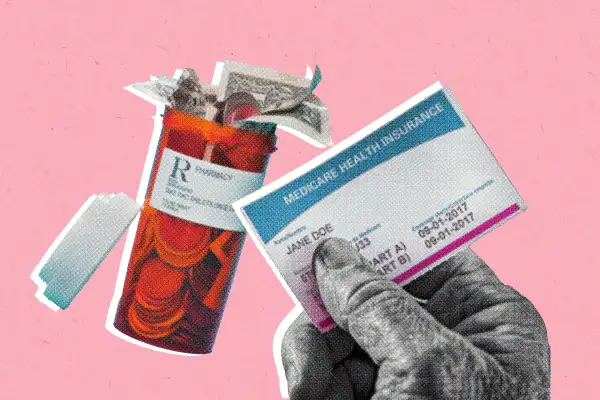Medicare Drug Negotiations Expected to Save Enrollees $1.5 Billion a Year

Medicare has negotiated down the prices for several popular prescription drugs for the first time ever, resulting in steep discounts for millions of enrollees.
The Biden administration on Thursday unveiled the outcome of Medicare’s first round of negotiations for 10 drugs used to treat diabetes, arthritis, heart failure, cancer and other conditions. The discounts will save the Medicare program a total of $6 billion, and beneficiaries will save an estimated $1.5 billion on out-of-pocket costs starting in 2026, according to the Centers for Medicare & Medicaid Services (CMS).
“For years, millions of Americans were forced to choose between paying for medications or putting food on the table,” President Joe Biden said in an announcement. “Big Pharma blocked Medicare from being able to negotiate prices on behalf of seniors and people with disabilities. But we fought back and won.”
About 8.8 million Americans in Medicare are prescribed at least one of the 10 discounted drugs, according to government estimates. That works out to an average savings of about $170 per person in 2026, when the new prices are enacted. All enrollees stand to benefit, however, as the $6 billion in overall Medicare cost savings will result in efficiencies to the program, officials said in a briefing with reporters.
The prices as part of the first round of negotiations are for prescription drug benefits that are part of Medicare Part D, or Medicare's prescription drug plan, which covers 54 million Americans.
Why Medicare is negotiating prescription drug prices
The price negotiations were mandated by the Inflation Reduction Act, a sprawling health and climate spending package passed in 2022. The law allowed Medicare to identify 100 high-cost drugs without generic alternatives and begin negotiating with drug makers to bring prices down.
Private health insurance companies and other federal government agencies have long been able to haggle with drug makers on pricing. However, Medicare was bound by a “noninterference” clause that barred it from doing so.
The Inflation Reduction Act amended that rule, giving Medicare the ability to negotiate a select number of drugs in the upcoming years — a change long fought for by health care advocates but much criticized by drug makers.
Pharmaceutical companies have filed several lawsuits trying to halt the bargaining process, stating that it will stifle drug innovation.
“Despite taking billions of taxpayer dollars for drug development, these Big Pharma companies unleashed an army of patent attorneys to keep life-saving medicine exclusive and more expensive for seniors and other patients,” Tony Clark, executive director of the advocacy group Accountable US, said Wednesday at an event about drug costs.
But legal challenges have not been successful so far, and the Biden administration is pressing forward. The 10 drugs announced Thursday are the first batch in several rounds of negotiations to come.
Ultimately, the nonpartisan Congressional Budget Office expects that the new drug negotiation rules will save Medicare nearly $100 billion by 2031. Over the next 30 years, the CBO estimated that the lower costs — which translate to lower profits for drug companies — could prevent 13 new drugs from coming to market, or 1% out of an estimated 1,300 novel medications.
Which drugs are getting cheaper
The 10 drugs that were selected for this first round of negotiations are blockbuster drugs, costing Medicare over $56 billion last year or about 20% of the program's total spending on prescription drugs.
The negotiations yielded discounts ranging from 79% on the diabetes drug Januvia to 38% for a blood cancer treatment called Imbruvica.
Here’s a list of all 10 drugs and their discounted prices:
- Januvia (treats diabetes): 79% discount
- Fiasp (diabetes): 76% discount
- Farxiga (diabetes, heart failure, kidney disease): 68% discount
- Enbrel (rheumatoid and psoriatic arthritis): 67% discount
- Jardiance (diabetes, heart failure, kidney disease): 66% discount
- Stelara (psoriasis, arthritis, bowel diseases): 66% discount
- Xarelto (blood clots, heart diseases): 62% discount
- Eliquis (blood clots): 56% discount
- Entresto (heart failure): 53% discount
- Imbruvica (blood cancers): 38% discount
The lower prices will go into effect for Medicare Part D beneficiaries in January 2026.
Starting in February, Medicare will begin the same negotiation process for 15 additional high-cost drugs. The following year, the same goes for another 15 drugs, and up to 20 drugs will be negotiated in 2027 and onward.
Next year, a related Inflation Reduction Act provision will go into effect as well: Out-of-pocket prescription costs for all Medicare Part D enrollees will be capped at $2,000 per year. Already, the law has capped out-of-pocket insulin expenses for beneficiaries at $35 per month, a measure that officials say benefited more than 3 million Americans.
“These negotiated prices — they're not just about costs,” CMS Administrator Chiquita Brooks-LaSure said on a call with reporters. “They are about helping to make sure that your aunt, your father, your grandfather or you live longer and healthier.”
More from Money:
The Best Over-the-Counter Drugs of 2024
White House Takes Aim at ‘Corporate Tricks’ That Waste People’s Time and Money

